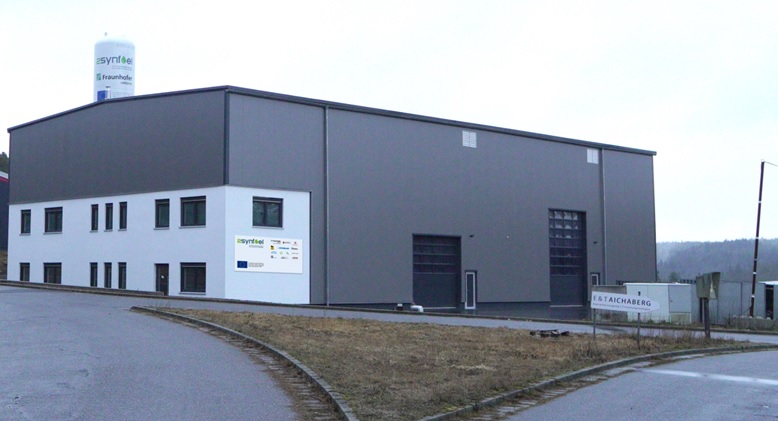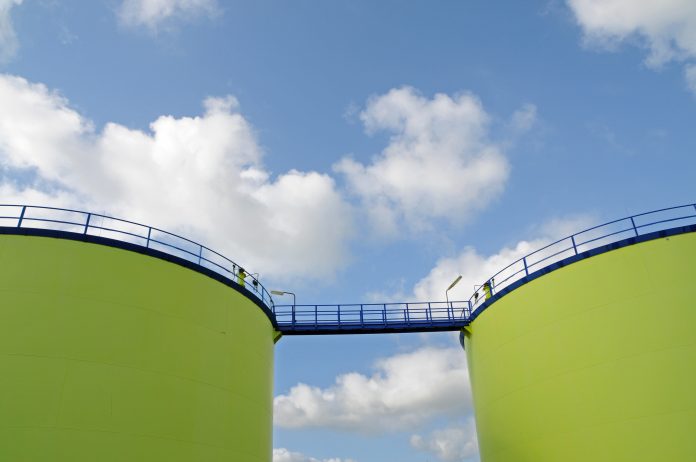Here, we learn about the Horizon 2020 To-Syn-Fuel project that opens its pre-commercial plant to demonstrate the conversion of waste biomass to liquid fuels & green hydrogen
To-Syn-Fuel is a project supported by Horizon 2020, under the programme for biofuels and renewable fuels.
As Maria Georgiadou, Senior Expert of the European Commission – DG Research and Innovation, reported in the opening of the first To-Syn-Fuel webinar in April 2021 hosted by the 29th EUBCE, the European Green Deal is a top priority for climate, energy and mobility. The target is for Europe to become climate-neutral by 2050, protecting humans, animals and eco-systems, but also creating economic growth across all demographics.
All these measures are important for the support of biofuels, bioenergy and renewable fuels, under sustainable conditions and with sustainable feedstocks. In addition, to implement the 2030 Climate target plan with the 55% greenhouse gas emissions reduction, the Fit for 55 package was adopted in the second part of 2021 by the European Commission. This consists of the revision of several EU directives, including two legislative proposals to support the uptake of sustainable fuels and sustainable alternative fuels in maritime and aviation.
To-Syn-Fuel innovation concept
To-Syn-Fuel aims to demonstrate a sustainable process that can transform waste biomass, such as sewage sludge into liquid fuels and hydrogen. The Thermo-Catalytic Reforming TCR® is a pyrolysis-based technology and has been implemented in a new process integrated with hydrodeoxygenation (HDO) and pressure swing adsorption (PSA) technologies to convert a wide range of residual biomass into three main products: H2-rich synthesis gas, biochar and a liquid bio-oil that can be upgraded to fuels capable of being used directly in automotive internal combustion engines without modification, as they fulfil EN fuel standards.
In this project, the operational capacity of TCR® is designed for up to 500 kg per hour of sewage sludge at a water content of 5-15 %. The main purpose of this unit is the long-term operation of a pre-commercial demonstrator, which is the final step of development before the technology reaches full commercial scale. The integrated system with the TCR®500-demonstrator is now in operation, and it will continue to operate for up to 5,000 hours to produce more than 200,000 litres of biocrude oil. Then, the liquid bio-oil resulting from the To-Syn-Fuel technology can be refined to drop in transport fuels using the hydrogen from the gas fraction produced by TCR®.

Showcase of the integrated demonstrator plant
The location of the demonstrator is in Bavaria, Hohenburg industrial area (district of Amberg-Sulzbach) near Fraunhofer UMSICHT Institute, in the South of Germany, and offers numerous advantages, such as many years of on-site experience in drying and handling pre-treated sewage sludge. By locating the demonstrator plant close to these feedstocks and services, To-Syn-Fuel will engage with waste generators and prove to them the value of its circular approach.
The current phase of the To-Syn-Fuel project is the integrated operation of the systems and production of liquid fuels and green hydrogen from sewage sludge.
The first testing campaigns with TCR® have shown a very satisfying performance. Within over 500 operational hours, more than 200 tonnes of dried sewage sludge have been converted into 20,000+ litres of TCR®-oil. The yield and the quality of the products achieved are within expectations (November 2021).
Within the last step of the project, further campaigns are planned to process 12 tonnes of dried sludge per day and to gain more long-term experience with the technology. Alongside the production of the fuel, comprehensive engine tests will be performed to evaluate if these drop-in fuels have comparable engine performance and emissions to fossil-derived fuels.
To-Syn-Fuel is designed to set the benchmark for future sustainable development within Europe, by creating a world-class exemplar of advanced biofuels production to the rest of the world, while successfully addressing energy, environmental, economic and social needs.
By the end of the project, the TCR®/PSA/HDO technology will have been validated at TRL-7 (system prototype demonstration in operational environment), with the business plan, and the environmental and social sustainability analysis completed.
Within the To-Syn-Fuel project, plant Demonstration Days are foreseen as the perfect environment to enable efficient matching of new ideas with the necessary expertise.
The first plant Demonstration Day was held in Hohenburg on 22nd September 2021 and was hosted by Fraunhofer UMSICHT. The event was held via an online platform, where presenters and attendees could join virtually, and where the plant site visit was streamed live.
The second project plant Demonstration Day is planned for Spring/ Summer 2022, and it will be conceived as both a virtual and on-site event to give a live demonstration of the working plant.
Advanced biofuels production & testing
Concerning the overall efficiency of the plant, it is known from pre-tests of small-scale experiments that up to 90% of the energy can be transferred from the feedstock to the products, and that around 10% of energy from feedstock is needed as heating energy. Specifically, the liquid bio-oil produced by TCR® has a high heating value (LHV: ≈35 MJ/kg).
The bio-oil is also thermally stable, with a low water and oxygen content and it, therefore, represents an excellent precursor for hydrotreatment. In fact, during the hydrotreatment process, which requires a thermally stable oil as it is carried out at a
temperature of around 260-400°C and up to 200 bar pressure, the TCR®-oil is upgraded using the hydrogen from the plant process. This leads to the rejection of S, N and O from the bio-oil and results in a high-quality product: hydrotreated TCR bio-oil (HBO).
The HBO has a LHV of >42 MJ/kg, a H/C ratio of around 2,05 and can be separated by distillation into Diesel fraction and Naphtha fraction. The Diesel fraction can directly achieve the EN590 standard for Diesel fuel, and the Naphtha fraction is comparable with raw gasoline in the refinery process.
Current To-Syn-Fuel project activities comprise the distillation of the upgraded TCR®-oil to produce gasoline and diesel fractions that will be tested through performance, combustion and emission characteristics. Testing will also evaluate the suitability of this oil for blending with conventional fossil fuels.
References
– Profiles in OAG January 2020, January 2019 and April 2019 issues
– Paper BP.1.2, EUBCE 2021 Online Conference Proceedings www.eubce.com
– For details, www.tosynfuel.eu
Please note: This is a commercial profile
© 2019. This work is licensed under CC-BY-NC-ND.












